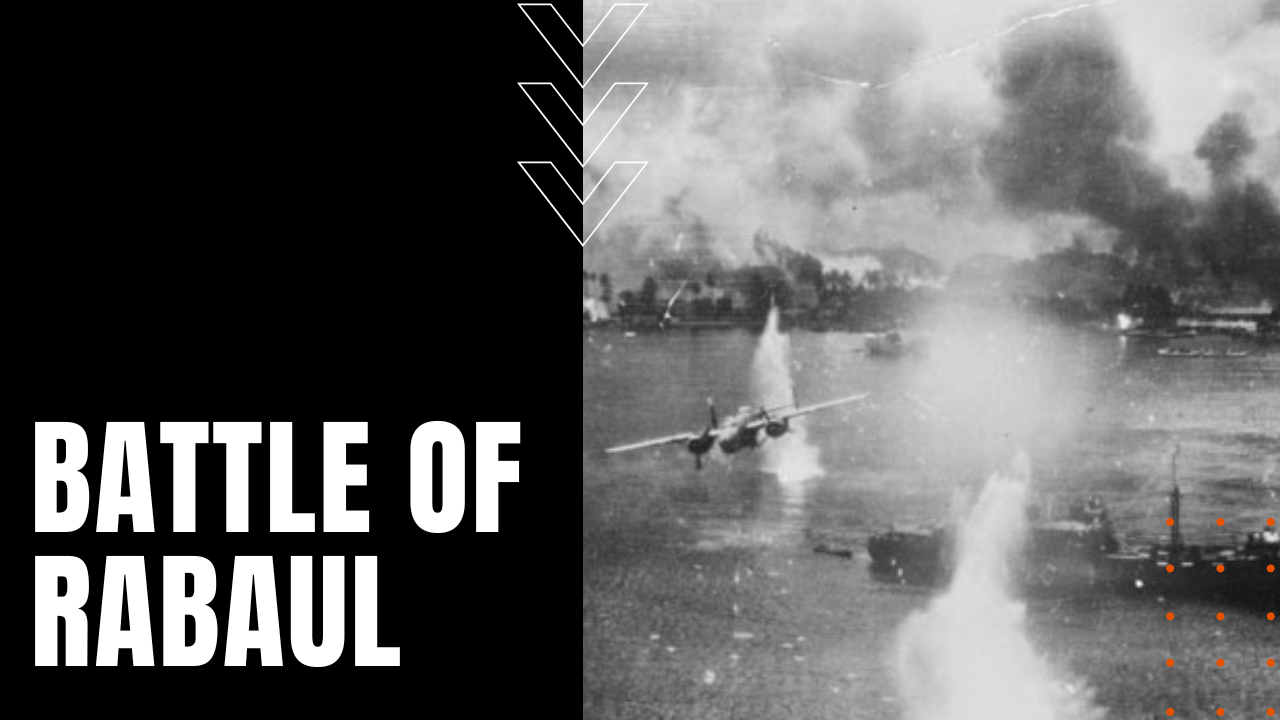Battle of Rabaul

After Allied war planners gave up on their objective of establishing a “secure fleet anchorage” on the South Pacific Island of New Britain—deeming the island indefensible under a full-scale Japanese attack—a garrison of Australian troops were tasked with the protection of a Royal Australian Air Force landing field at Rabaul, as well as a flying boat anchorage at nearby Simpson Harbor—assets vital to the Allies’ surveillance of Japanese troop movements in the region.
Little Offensive Capabilities
Led by RAAF Wing Commander John Lerew, the contingent of men had little offensive capabilities, and when the garrison came under Japanese attack on January 4th, 1942, Lerew sent RAAF headquarters an old Roman gladiator saying, “Nos Morituri Te Salutamus,” or “we who are about to die salut you.” On January 20th, over 100 Japanese war planes attacked Rabaul, quickly knocking out Australian coastal artillery defense, while forcing Australian soldiers to retreat from Rabaul into the forbidding dangers inherent within the island’s jungleous interior.
Japanese Swarm the Island
Two days later, some 3 to 4,000 Japanese landed just off of New Ireland, while on January 23rd, an additional 5,000 took control of Simpson Harbor. On February 9th, the Japanese landed a force at Gasmata, effectively severing the Australian’s line of retreat, leading to the capture or surrender of more than 1,000 Allied soldiers. Tragically, however, on June 30th, 1942, after some 1,054 Australian and New Zealand prisoners of war had been loaded onto the Japanese merchant ship Montevideo Maru at Rabaul harbor, bound for a prison camp on the Chinese island of Hainan, the vessel was sighted by the American submarine USS Sturgeon near the northern Philippine coast.
A tragedy Unfolds
While the Maru was initially traveling too fast for a successful torpedo attack, when the ship slowed to twelve knots around midnight, unaware that the ship was carrying Allied prisoners of war, the Sturgeon fired four torpedoes toward the transport ship. At least one torpedo found its mark, and while the ship went down in eleven minutes time, those Australian who had escaped the sinking Maru sang “Auld Lang Syne” to their comrades trapped inside the doomed ship, making the Japanese takeover of Rabaul, the worst defeat Australia would suffer during the Second World War.
